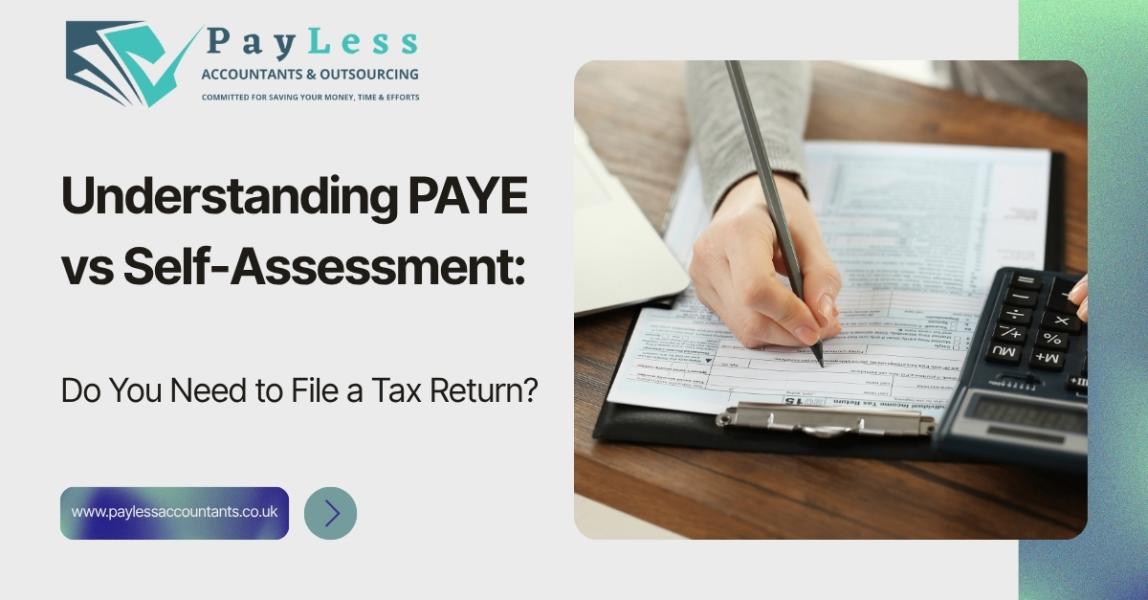Understanding PAYE vs Self-Assessment: Do You Need to File a Tax Return?
Let’s break down the difference between PAYE and Self-Assessment and help you determine if filing a tax return is necessary.
What is PAYE?
PAYE (Pay As You Earn) is the system HMRC uses to collect Income Tax and National Insurance directly from your wages or pension. If you are employed, your employer deducts tax and NIC from your salary before you are paid.
For most employees, PAYE ensures that the correct tax is paid automatically. In many cases, you don’t need to worry about filing a tax return because HMRC receives all the information from your employer.
What is Self-Assessment?
Self-Assessment is HMRC’s method of collecting Income Tax from individuals and businesses whose income is not taxed at source. This usually applies to the self-employed, landlords, company directors, and those with additional income outside of regular employment.
Through Self-Assessment, you must file a tax return each year to report income, expenses, and any reliefs or allowances you are claiming. HMRC then calculates the tax you owe (or the refund you may be due).
Do You Need to File a Tax Return?
Even if you are on PAYE, there are situations where filing a tax return becomes necessary. You need to file if:
-
You are self-employed with income over £1,000.
-
You are a partner in a business.
-
You are a company director (unless it’s a non-profit with no income).
-
You have rental income.
-
You earn income from savings, investments, or dividends above certain thresholds.
-
You have untaxed income (e.g., freelancing alongside a job).
-
You need to claim tax relief on work expenses, pension contributions, or charitable donations.
-
Your total income exceeds £100,000.
For those on PAYE only, with no other sources of income, filing a tax return is generally not required—your employer manages it all through payroll.
PAYE vs Self-Assessment: Key Differences
| Aspect | PAYE | Self-Assessment |
|---|---|---|
| Who it applies to | Employees, pensioners | Self-employed, landlords, directors, and those with untaxed income |
| How tax is collected | Deducted automatically via employer | Declared and paid through annual tax return |
| Filing requirement | Usually none | Mandatory |
| Flexibility | Less control, tax deducted at source | Full responsibility to declare all income and claim reliefs |
How Payless Accountant Can Help
Understanding whether you need to file a tax return can be tricky, especially if you have multiple income sources. At Payless Accountant, we simplify tax for individuals and businesses. Whether you are employed under PAYE or required to submit a Self-Assessment, we ensure your tax obligations are met accurately and on time—while maximising any allowances or reliefs available.
Final Thoughts
If your only income comes from employment or pension under PAYE, you probably don’t need to file a tax return. But if you have additional income or complex financial circumstances, Self-Assessment may apply to you. The key is understanding your situation and staying compliant with HMRC.
Not sure where you stand? Get in touch with Payless Accountant today—our experts are here to guide you every step of the way.

